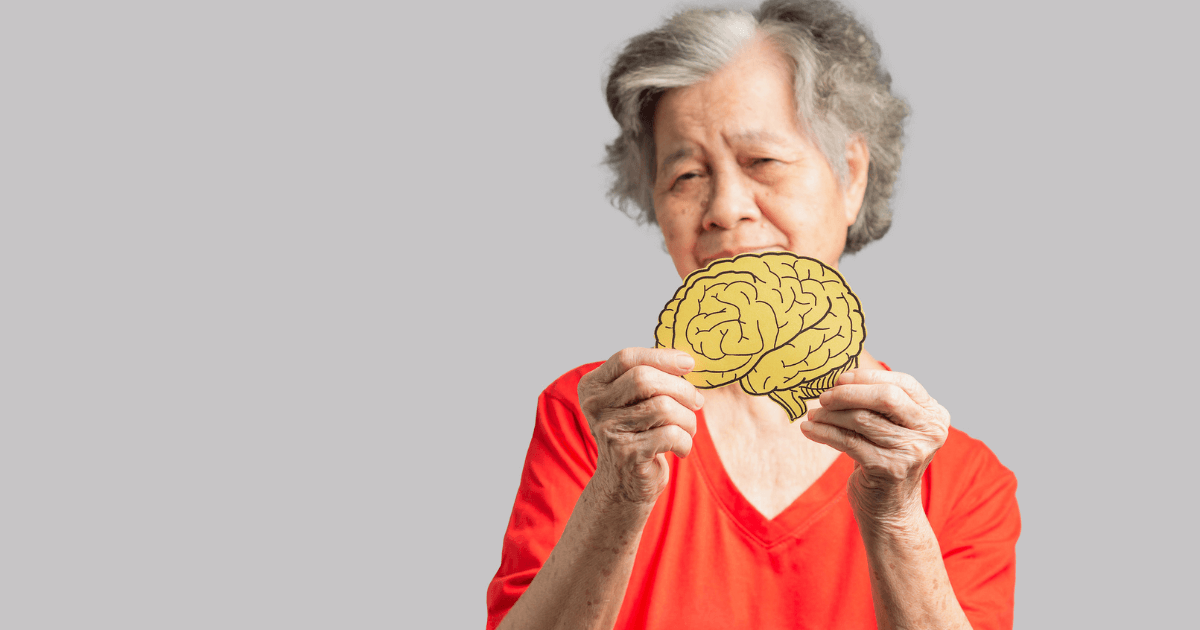A dementia diagnosis is likely one of the last things you want for your loved one. Upon hearing that term, most people assume their loved one has Alzheimer’s disease. However, Alzheimer’s is actually only one type of dementia. There are a number of other types of dementia, and knowing which symptoms are consistent with each can not only help you plan for the future but also be the best advocate for your loved one’s care. As a resource for older adults and their families in Hillsborough Township, we’re sharing the details on the different types of dementia.
What is dementia?
Dementia is a term that describes symptoms that affect thinking, memory, and behavior rather than a disease in and of itself. Alzheimer’s disease and dementia are often mistaken for the same thing. While Alzheimer’s is the most prevalent type, accounting for 60 to 80 percent of cases as reported by the CDC, there are other types of dementia as well as a range of conditions that can cause symptoms of dementia. What’s more, while it’s true that many dementias are permanent, starting slowly and progressing over time, some can be reversed, such as those caused by thyroid problems and vitamin deficiencies, which makes early diagnosis vital.
Types of dementia
It’s important to note that there are conditions that can mimic the symptoms of dementia, such as rare brain disorders, cancer, and even some infections, so it’s possible that what your loved one is experiencing is not on this list. However, the most common types of dementia, according to the Alzheimer’s Association, include the following.
Alzheimer’s disease
Alzheimer’s disease is slow and progressive, beginning with memory loss and subtle behavioral changes. Over time, the disease undermines most areas of brain functioning, including speech and movement. People with Alzheimer’s have plaque built up in the brain and damage to nerve cells. Researchers think a combination of genetic and environmental causes plays a role in the disorder.
Vascular dementia
Vascular dementia occurs when damage to blood vessels impairs blood flow to the brain, and this can cause a form of brain damage and a wide variety of symptoms. Those symptoms are heavily dependent on which region of the brain is affected. A history of heart disease, stroke, or blood clots—as well as a family history of these diseases—increases the risk of vascular dementia.
Lewy body dementia
Lewy body dementia (LBD) causes proteins called alpha-synucleins to accumulate in the brain. Over time, people with LBD develop sleep and mobility issues. They may also have visual hallucinations. Because LBD causes the same brain proteins as Parkinson’s disease, LBD is sometimes confused with Parkinson’s.
Download our Beginner’s Guide to Recognizing the Early Signs of Dementia.
Parkinson’s disease
Parkinson’s disease is a nervous system disorder that affects movement. As the disease progresses, many sufferers experience changes in mood and thinking.
Frontotemporal dementia
Frontotemporal dementia is a group of dementia affecting the brain’s frontotemporal lobe. People with frontotemporal dementia may experience changes in behavior and speech before showing signs of memory loss or thinking difficulties. The symptoms tend to appear earlier than Alzheimer’s, often around age 60.
Creutzfeldt-Jakob disease
Creutzfeldt-Jakob disease (CJD) is caused by a prion, which is similar to a virus. There are two forms: a genetically inherited mutation and the infectious form, called mad cow disease. CJD can occur at any age, causes rapid loss of problem-solving and thinking skills, and is inevitably fatal. It’s also extremely rare, occurring in about one in a million people.
Hydrocephalus
Excess fluid on the brain, called hydrocephalus, can interfere with thinking and memory. This form of dementia is usually caused by something else, such as a brain infection or brain injury, and is often reversible.
Huntington’s disease
Huntington’s disease is a rare, progressive genetic disorder that is inevitably fatal and is characterized by involuntary movements. Over time, symptoms progress to include mood and behavior changes and difficulties with thinking. It can affect people at any age.
Wernicke-Korsakoff syndrome
Wernicke-Korsakoff syndrome (WKS) is caused by severe thiamine (vitamin B1) deficiency. In the industrialized world, nutritional deficits this severe are rare. However, alcohol can impair thiamine metabolism, so most Americans with WKS have a history of alcohol abuse. Thiamine injections often reverse symptoms.
Options for caring for a loved one living with dementia in Hillsborough Township
In the early stages of dementia, your loved one can likely remain at home with support from friends and family members and/or an in-home aide(s) who can provide personalized care. Keep in mind that, over time, caregiving for a loved one with dementia can be mentally and physically taxing, particularly if you are also taking care of your own responsibilities at home and work. What’s more, in-home aides can be expensive as care needs increase and may not be covered by Medicare.
When dementia progresses to the later stages, specialized care outside the home may become necessary to give your loved one the best quality of life. As such, assisted living and memory care are two types of senior living in Hillsborough Township that can offer support.
- Assisted living in Hillsborough Township provides housing and support with activities of daily living such as medication management, bathing, and dressing. Assisted living communities offer onsite medical care, emergency call systems, wellness programs, a calendar of social activities, three daily meals, and transportation. These communities often have specific units or neighborhoods catering to those with dementia.
- Memory care in Hillsborough Township is designed to nurture those with dementia with specifically trained staff and individualized support. You’ll find 24-hour supervision and an environment that is easy to navigate, is secure and may also use soothing colors and lighting. Plus, memory care communities can help your loved one live their best life with therapy, structured activities, social opportunities, and even dining options designed to improve nutrition and independence.
To learn more about the types of dementia, download our Beginner’s Guide to Recognizing the Early Signs of Dementia today.
 hbspt.cta.load(9314086, ’49dd9c4b-1e11-4b3e-84e1-e0c3ef881a36′, {“useNewLoader”:”true”,”region”:”na1″});
hbspt.cta.load(9314086, ’49dd9c4b-1e11-4b3e-84e1-e0c3ef881a36′, {“useNewLoader”:”true”,”region”:”na1″});





